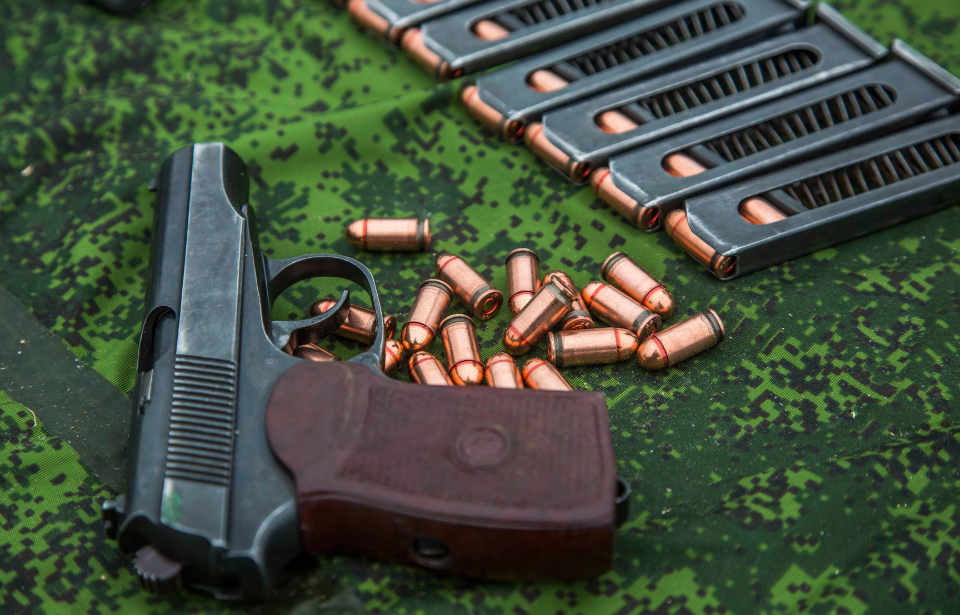Not long after World War II came to an end, the United States and the USSR entered into a Cold War. As a result, both countries began an arms race, with the goal being to produced the most advanced weapons possible. Early on, the Soviet Union developed the Makarov, a pistol that was quickly adopted by countries within the Eastern Bloc. Despite its age, the firearm is still in service across the world, thanks to its reputation for being a fairly reliable weapon.
Development of the Makarov
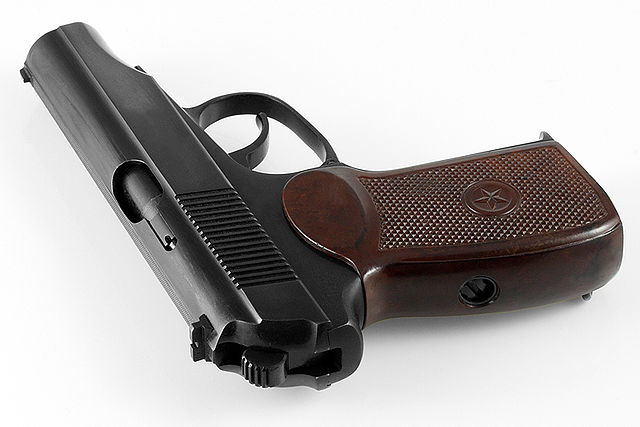
In December 1945, the Soviet Union announced two contests where gunmakers were tasked with creating a replacement for the Tula Tokarev (TT) pistol and the Nagant M1895 revolver. It was determined the new firearm would fire the new 9 x 18 mm round, as it “allowed practical straight blowback operation […] while retaining low recoil and good stopping power.” An emphasis was placed on safety and accuracy, among a number of other requirements.
After extensive testing was done on the submitted designs, the winner was Nikolay Makarov.
Makarov’s design
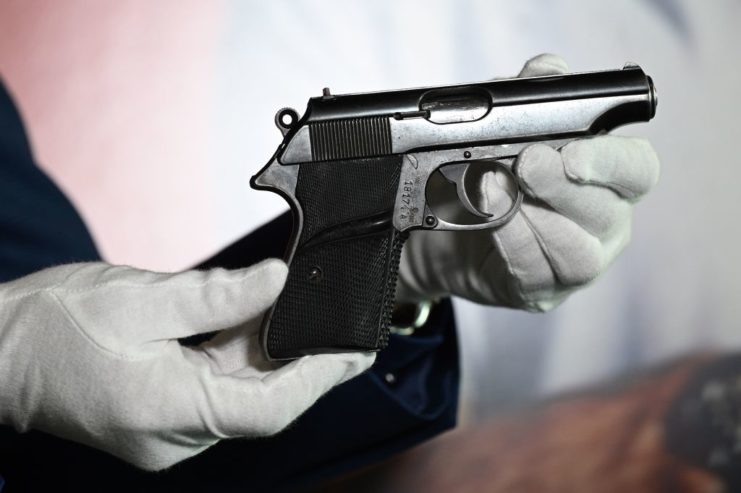
One of the main reasons the Makarov’s design was selected was that it had significantly fewer malfunctions than the competing guns. In addition to its reliability, the pistol also had fewer parts, which were relatively easy to find, and could be easily cleaned and repaired. This made it both cheap and easy to mass produce.
Makarov based his design, in part, on the Walther PP, a German semi-automatic police pistol that was introduced prior to the Second World War and remains in service to this day. Like the PP, the Makarov has a double-action trigger, a fixed barrel and a blowback slide. It also features an eight-shot capacity and is fed by a detachable box magazine. What makes it different, however, is its simplified design.
In terms of range, the Makarov is able to effectively fire up to 50 meters, with a muzzle velocity of 315 miles per second. This made it the perfect handgun for self-defense.
A quick entry into service
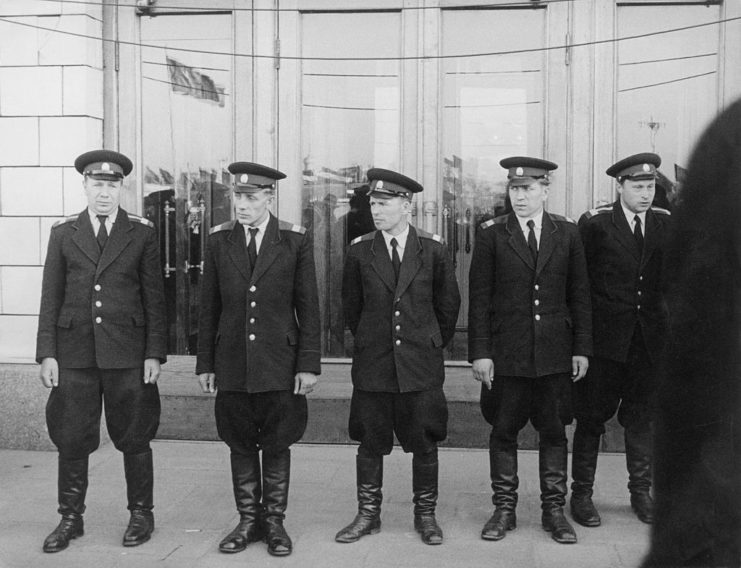
In December 1951, the pistol was formally adopted by the USSR and given the name, 9 mm Pistolet Makarova – or “PM.” The standard issue sidearm of the Soviet Union, it was given to non-commissioned officers in the military, as well as police officers, Special Forces members, and tank and air crews.
The Makarov’s design was very popular, and many countries were eager to get their hands on affordable and reliable weapons. Some purchased the pistol directly from the USSR, while others were given production licenses, including East Germany. The country manufactured their own version from 1958-65, which featured a blue hue on the frame.
Use of the Makarov in combat
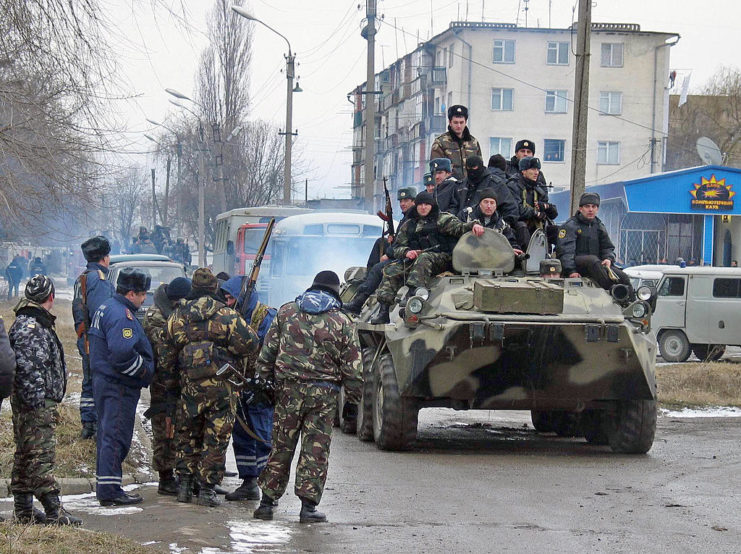
The Makarov has been in high demand for many years and, as such, has seen use in a number of conflicts. Vietnamese soldiers used copies during both the First Indochina War and the Vietnam War, while Russian soldiers were equipped with the weapon during the Soviet-Afghan War. They also used them during the First and Second Chechen War.
Additionally, the pistol has been used in a number of conflicts in the Middle East, including the War in Afghanistan, the Libyan Crisis and the Syrian Civil War. The most recent battle to feature the Makarov is the 2022 Russian invasion of Ukraine.
A popular pistol on the collector’s market
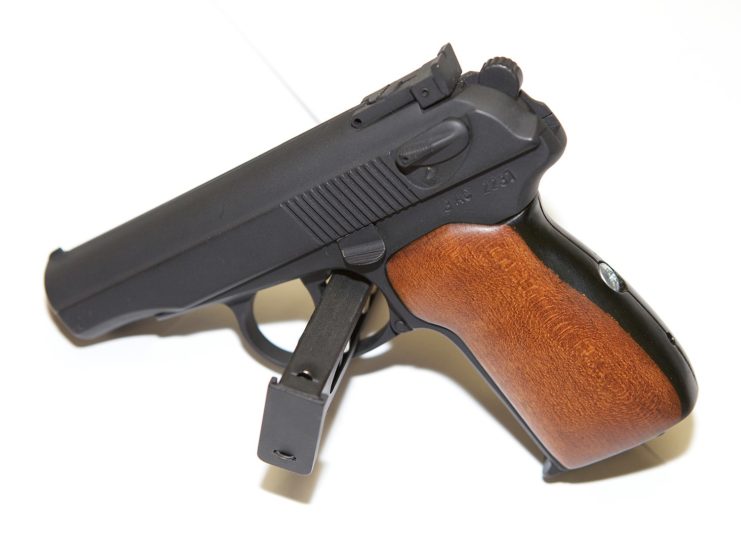
Soviet weapons have long been sought after by collectors, and there are a few reasons for this. First, they’re harder to acquire than those from other countries. The Makarov is also well-known for its appearance and reliability, with the latter meaning many still fire, even though they’re decades old.
It’s estimated that around 5,000,000 Makarov pistols have been produced since 1949, with a number of variants having hit the market. This includes the PMM, which is a 1990s rework of the gun’s original design and features an increase in the muzzle velocity and the amount of rounds that can be chambered. Another variant is the PB, which featured a detachable suppressor that made it a favorite of the KGB.
New! Want to become a trivia master? Sign up for our War History Fact of the Day newsletter!
More from us: MG-42: The German Machine Gun That Mowed Down Enemies On the Battlefield
The Makarov was formally replaced as the official Russian service firearm in 2003 by the MP-443 Grach (“PYa”). However, since so many were produced, the pistol is still commonplace throughout Russia. It’s also been adopted by other countries, including Bulgaria, Sierra Leone, Zimbabwe, Syria, Ukraine, India and Vietnam.
